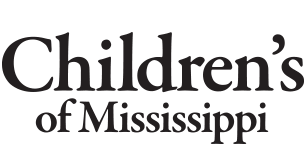I Want To
Contact Us
- For appointments by phone: (601) 984-2700 (Option 1)
- Make an Appointment
Children's Cancer and Blood Disorders
- Children's Cancer and Blood Disorders Home
- Bone Cancer
- Bone Marrow Transplant
- Brain and Central Nervous System (CNS) Cancer
- Germ Cell Tumors
- Hepatoblastoma
- Hodgkin's Lymphoma
- Langerhans Cell Histiocytosis
- Leukemia
- Neuroblastoma
- Non-Hodgkin's Lymphoma (NHL)
- Retinoblastoma
- Soft Tissue Cancer
- Wilms Tumor
- Children's Cancer Support Programs
Children's Wilms Tumor
Wilms tumor, a type of kidney cancer, tends to strike young children. Most who are diagnosed with it are 3 years old or younger. These tumors can start anywhere in your child’s kidneys. While there are other types of kidney cancer which may affect children, roughly 90 percent are Wilms tumors.
Your child’s kidneys, two bean-shaped organs, are just under the rib cage on either side of the backbone. Kidneys filter blood and rid the body of salt and waste products as well as excess water. Kidneys change these products into urine which flows through the ureters, long thin tubes, to the bladder. Kidneys also help control blood pressure and make a hormone which tells bone marrow when to make more red blood cells.
Doctors report about 500 new cases of Wilms tumors each year in the United States. They account for 5 percent of all childhood cancers.
Can my child survive Wilms tumor?
The short answer is “yes.” If the tumor is caught early and has a favorable histology, some 90 percent or more survive. If the tumor has an unfavorable histology, the statistical chance of surviving is lower but still good. Families should know that statistics will not drive the outcome for your child. Each person is different, so statistics cannot determine an individual’s outcome.
Doctors will discuss your child’s cancer with you as well as other health conditions that may affect the outcome. At Children's Cancer Center, where research already has led to longer survival, doctors are searching for more and more ways for your child to defeat cancer. Doctors here are on the forefront of testing new procedures and techniques to combat children’s kidney cancers and can offer you and your child the most up-to-date treatments available.
Your child's cancer care team
At Children's Cancer Center, pediatric oncologists and urologic surgeons work with children with kidney cancers. Together, with a large group of other doctors, specialists and support personnel, they work to help your child recover. Others on this team include nurse practitioners, pathologists, radiologists, transfusion medicine specialists, psychologists, radiation oncologists, nurses, medical technologists, counselors, child life specialists, teachers, dietitians and social workers. Some team members you will see regularly. Others you may never meet.
What we do
Your child’s care team is part of Children’s of Mississippi and UMMC Cancer Center and Research Institute, both arms of the University of Mississippi Medical Center. This pediatric team specializes in treating childhood cancers. In fact, this is the only place in the state children can receive some treatments. Doctors also can offer your child the opportunity to enroll in clinical trials which test new treatments for many cancers.
Your child’s doctors will take into consideration the type of cancer he has, how advanced it is and other conditions he may have in making recommendations for treatment. Many of your child’s doctors also teach the state’s next generation of caregivers and do research on new ways to earlier detect, diagnose and to treat cancers. They have to know the latest ways to detect, diagnose and treat cancers and use that knowledge every day to treat the state’s children.
This team also knows that battling any disease is emotionally, physically and financially draining and do all they can to help. For example, when possible, they will try to arrange all your child’s appointments for the same day and try to have various specialists visit your child in one room, so you don’t have to roam across the hospital’s large campus.
Treatment caters to your child with toys, movies and other distractions to help ease the boredom and fear that can accompany medical visits. This team knows its first priority is curing your child’s cancer, but team members never forget they’re dealing with children. Needles will be a part of this healing process, but your child will get more hugs than shots from this team.
If you choose, a family that has been in your situation will contact you to offer social support and the wisdom of their experience. Your child’s care team offers dozens of other support services for you, your child and your family.



 UMMC
UMMC